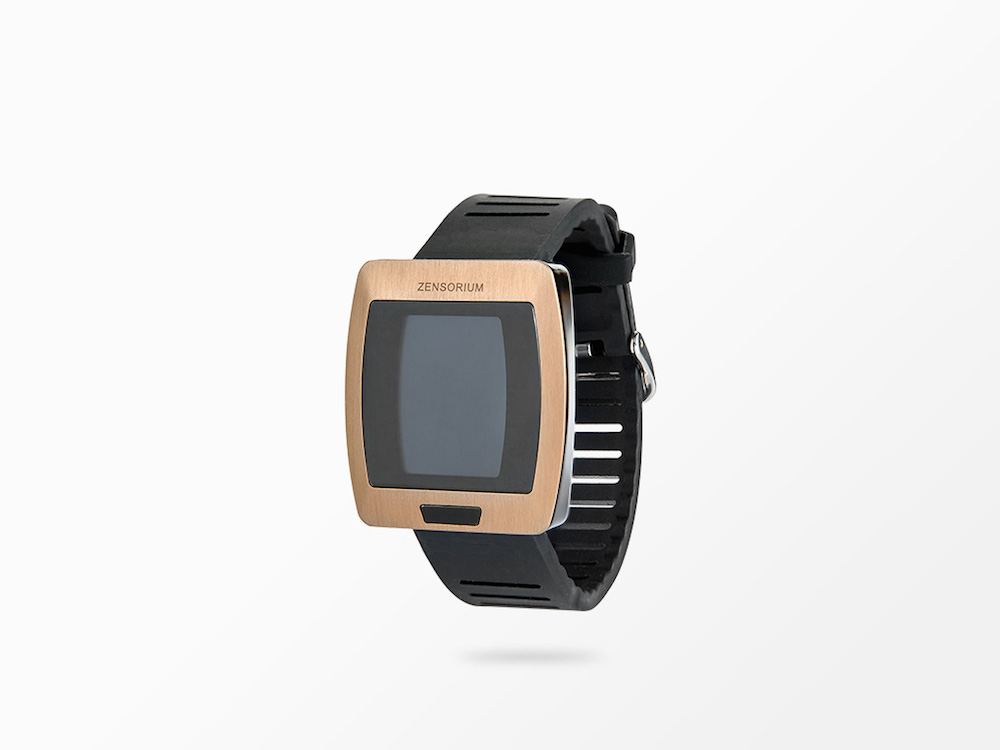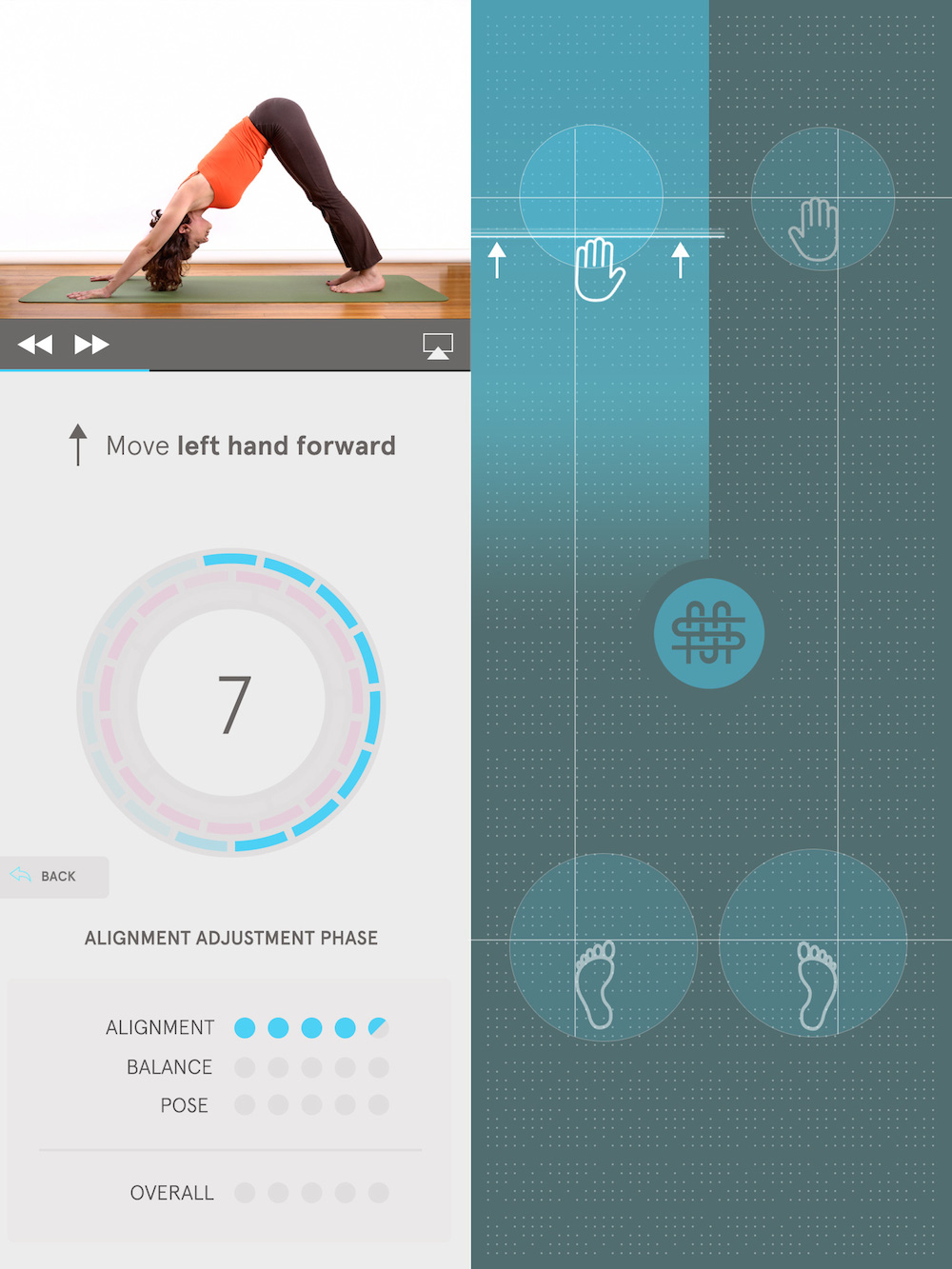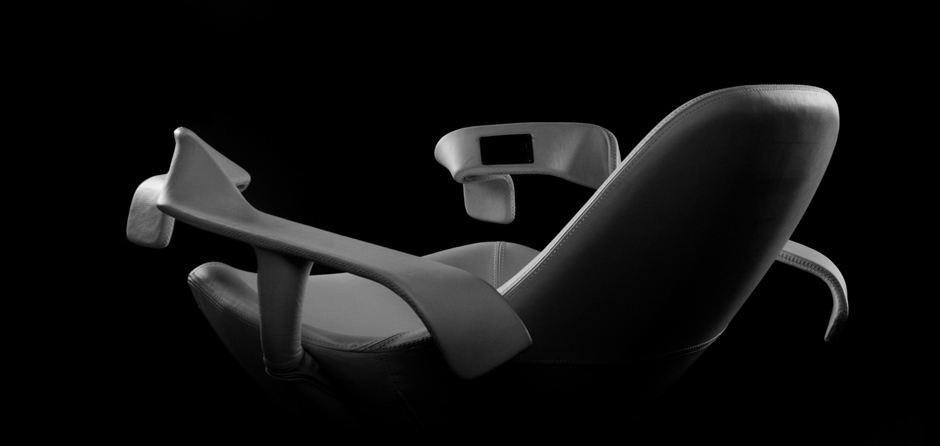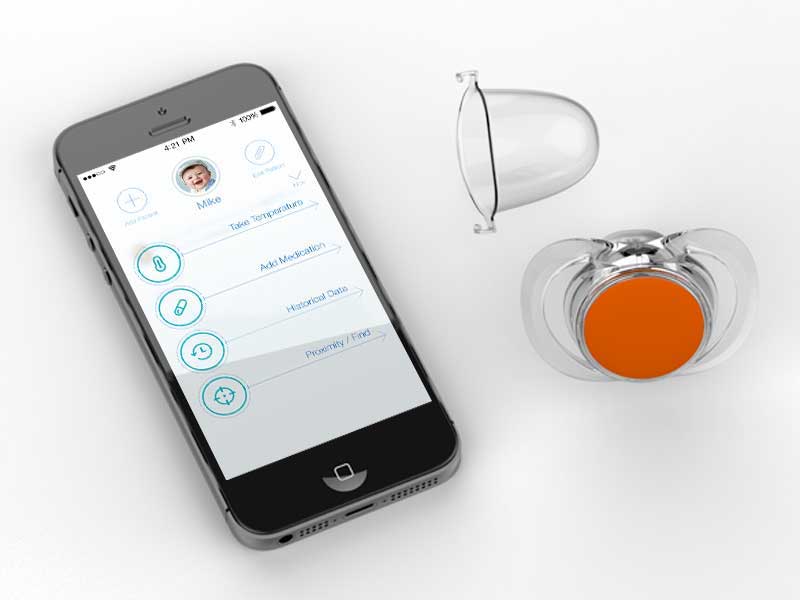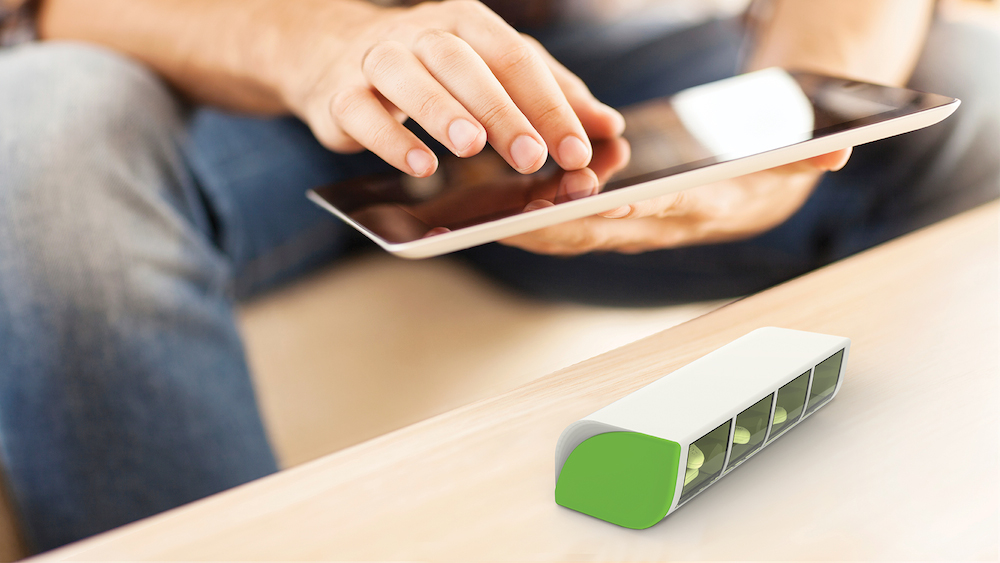Bluetooth Pacifiers and Smart Armchairs: CES' Best Health Tech
LAS VEGAS — The largest display of consumer electronics on the planet, CES, kicked off here on Monday (Jan. 6). Among the nearly 20,000 gizmos on display are a huge assortment of technologies designed with health and wellness in mind.
As expected, visitors to this year's CES will see an abundance of fitness trackers for athletes of many different sports, from marathon runners to snowboarders. But attendees will also see gadgets and devices that monitor your health when you aren't wearing workout clothes, such as an arm chair said to help you get fit while you watch TV, and a Bluetooth-enabled pacifier that lets parents know when baby is running a fever.
Live Science scoured CES in search of the most novel technology for the health-minded set. Here are our favorite finds so far:
Mood tracker
Lots of wristbands at this year's CES track your steps, calories burned or time spent working out. But one device aims to monitor your emotional health as well. Called Being and made by Zensorium, the device is touted as a way for people to track some of their moods throughout the day.
Built like a smartwatch, the device features sensors that collect heart rate and blood pressure data. This information is then used to assign the wearer a mood — it doesn't register all moods, but tells you whether you are excited, stressed, normal or calm. If you're feeling stressed, Being provides tips on how to unwind; for example, it may encourage you to take deep breaths.
Being also serves as a more conventional activity tracker, monitoring your steps taken and calories burned, as well as mapping out your sleep cycles. The device, due out in April, will retail for $169.15, according to the company. (Photo credit: Zensorium)
Get the world’s most fascinating discoveries delivered straight to your inbox.
High-tech yoga mat
You don't need much equipment to practice yoga, but for yoga enthusiasts who want to go high-tech, there's SmartMat, a yoga mat with sensors that can detect your pose and provide feedback on how to improve your form.
Users first calibrate the device by providing their heights and weights, and then performing a series of poses so the mat can determine the length of the user's limbs and torso. This helps the device provide customized feedback, such as whether you need to adjust your position to get the perfect pose, the company said.
"The feedback you get is very specific for your body," Leanne Beesley, a representative for SmartMat, told Live Science. And the more you use the mat, the more it learns about your body, Beesley said. [Best Fitness Tracker Bands 2015]
The SmartMat can detect 62 different poses, and can hold a charge for six hours. The mat also has different modes, specialized for use at home or during yoga classes. The device is available now for pre-order at $297, and will begin shipping in July. (Photo Credit: SmartMat)
Workout armchair
At last year's CES, fitness company TAO Wellness unveiled its Wellshell, a cellphone-size fitness tracker that also works as a tiny piece of exercise equipment. The company says that users can hold the device against their bodies to strengthen their muscles (a technique known as isometric exercise). The device connects to an app on your phone, which monitors your progress and teaches you new exercises. The novelty of this product is that it can be used anywhere, at any time, allowing you to sneak in a quick workout no matter your schedule.
But this year, TAO has taken that idea of working out anywhere to another level. The TAO Chair is a piece of exercise equipment that seconds as an actual chair for your office or living room. The device lets whoever is sitting in it work out different muscle groups. That's right, you can tone up those biceps while you binge-watch your favorite shows or shoot off emails.
The TAO Chair likely won't be available until the end of 2015, and the company isn't giving up details on what the device will cost just yet. In fact, the Wellshell of last year is still in the testing phase, and the company is also releasing no details yet about how much that item might cost. (Photo Credit: TAO Wellness)
Smart pacifier
Any parent who has ever tried to take a sick baby's temperature will appreciate Pacif-i, a new pacifier that seconds as a pediatric thermometer. This smart device connects via Bluetooth to your tablet or smartphone, allowing you to record your kid's temperature consistently and without any struggle.
The Pacif-i app graphs baby's temperature throughout the day, which lets parents monitor a fever and check how well a child is responding to medication. Of course, the pacifier can also be used when a child is well. Pacif-i features a built-in proximity sensor that monitors the device's location, so a smartphone alarm will warn parents if their pacifier-toting kid wanders away.
Blue Maestro, the company behind the smart pacifier, says the device is due to ship early this year. The expected retail price for Pacif-i is $40.00. (Photo Credit: Blue Maestro)
Never-forget pillbox
Liif is a new connected device from wellness company Tricella that helps you remember to take your medication. The device uses Bluetooth to connect with smartphones and tablets, but it can also sync up with its own external hub (which looks like a small white speaker), so that even people without the latest tech can receive alerts at pill time.
Liif was definitely designed with caretakers in mind, and it might help ease the stress of adults who care for elderly family members, or parents trying to monitor their college kids' medications from afar.
The smaller version of Liif, which has four pill compartments, retails for $59.99. A larger version with seven compartments goes for $74.99, and the smartphone-replacing hub is $119.99. You can pre-order all of these products now, but the company's website doesn't list information about when they're due to ship. (Photo Credit: Tricella)
Contributing reporting by Rachael Rettner.
Follow Elizabeth Palermo @techEpalermo. Follow Live Science @livescience, Facebook & Google+. Original article on Live Science.


